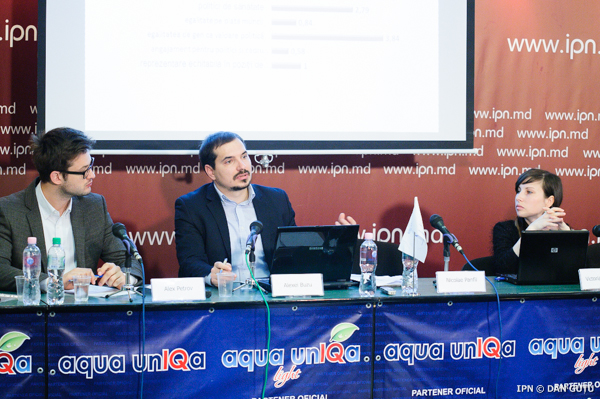The electoral platforms of the parties running in the November 30 parliamentary elections do not take into account the problems faced by the women and young people and address them summarily and inefficiently. This is the conclusion of a study made by the National Youth Council of Moldova, the Resource Center for Human Rights (CReDO) and the Partnership for Development Center within the Civic Coalition for Free and Fair Elections.
“Our main finding is that the problems of women and men, especially of the women, weren’t addressed sufficiently consistently and in detail in the electoral platforms and this is a great risk because, no matter which of the parties and independent candidates enter Parliament, these problems will not be seriously addressed in the government program. Thus, the structural problems in this field may not be solved by the next legislature,” Alexei Buzu, executive director of the Partnership for Development Center, said in a news conference at IPN.
He explained that the platforms of the election runners were analyzed based on 13 criteria concerning gender equality. For each of them, the runners got ‘0’ to ‘10’ points. The PDM and PL obtained the highest score – 3.43 points, followed by the PLDM with 3.21 points. Eight parties got less than ‘1’. The electoral platforms are like school essays or the list of purchases to do before Christmas, with presents for different categories of voters. The contenders promise higher pensions, but the Moldovan pension system is already deficient and may soon go bankrupt.
CReDO researcher Victoria Apostol said some of the areas, such as healthcare, are feminized, while others, such as agriculture, are masculinized both as regards the persons working in these sectors and those benefitting from their work, while the election runners pay increased attention to the masculinized areas. Some of the contenders promise to combat domestic violence and encourage women to report cases of domestic violence, but suggest no concrete measures in this field. Among the measures that the electoral programs of runners should include, Victoria Apostol mentioned the free tests for breast cancer and cervical cancer, including for women who do not have health policies, and the leveling of the retirement ages for women and men.
National Youth Council secretary general Alex Petrov said the youth dimension of the electoral platforms was assessed based on eight criteria and the situation was much the same as regards gender equality. “The young people are regarded as a autonomous sector that does not have specific problems and needs. In general, the youth policies are not mentioned as such,” he stated. According to Alex Petrov, a large part of the provisions of the platforms were copied from the platforms formulated in 2010 and most of them contain no statistics, studies or at least references to relevant legal acts. The parties achieved the best score as regards the involvement of the youth in decision making in parties, while the lowest score was as concerns the promotion of the youth in the local administration bodies. Though the youth sector is often addressed in concert with the social assistance sector, the parties obtained very low scores for their youth-friendly policies. The Council works with parties’ youth organizations and initiated discussions on the possibility of instituting a youth representation quota for the lists of candidates, similar to the gender quota.

